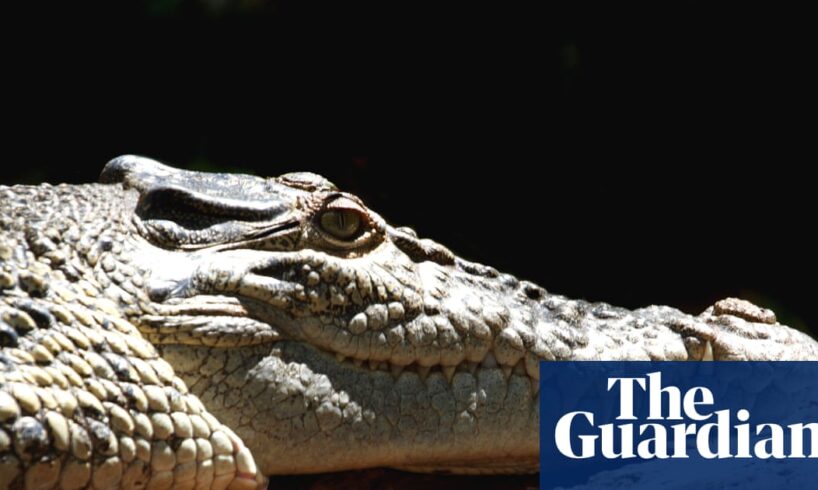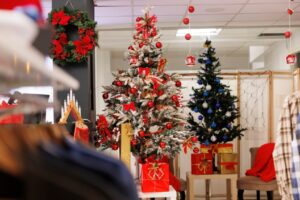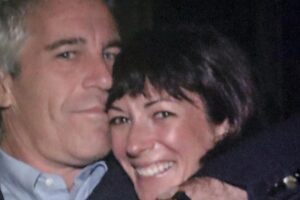
“We from the country have had enough.”
So ends the submission of Kelvin Douglas John Bunyan to a Queensland parliamentary committee considering legislation that would allow for safari style hunting and the harvesting of eggs of the most fearsome apex predator of the tropical north: the saltwater crocodile.
The 177 submissions lodged in response to Katter’s Australian party’s Crocodile Control and Conservation bill 2025 are penned by the kind of rich and colourful cast for which the far north is renowned. And, like the country itself, they are submissions full of surprise and contradiction.
There is the bowhunter, spearfisher, ex-professional fighter and diesel trucks driver who writes with passion and erudition that the proposed crocodile cull is “incredibly naive”, unscientific and dangerous – and then there is the general practitioner and standup paddle boarder who believes crocodiles need to be “kept in their place” so that young people can get off their phones and back into the fresh waterways.
There is the Carpentaria Land Council Aboriginal Corporation, which supports the bill “overall” – though with the important caveats that Indigenous people play a more integral role in croc management and that the species’ conservation be given greater emphasis.
Then there is the Kunggandji Cultural Custodian to whom Kunjurra Kunggandji – or the saltwater crocodile in his language – is a totem, a spiritual guide, an ancestor and for whom the killing of this sacred animal is the killing of kin.
Sign up: AU Breaking News email
There are the tour guides who say they would be embarrassed to tell international visitors they lived in a state that slaughtered wild crocs and that removing salties would hurt their businesses. Then the charter boat operators and fishing guides who fear for their industries should the bill not pass. There is the houseboat resident who says she nearly lost her husband to a lunging croc a week after it took her dog. And the Daintree forest dwellers who say their swampy retreat is healthier with crocodiles in it.
Katter’s Australian party’s Robbie Katter. There were 177 submissions lodged in response to KAP’s Crocodile Control and Conservation bill 2025. Photograph: Mick Tsikas/AAP
There is Bunyan, born in 1961, who grew up on a farm in the Innisfail region and who writes – almost entirely unburdened by punctuation – with echoes of the wild poetry of the Jerilderie Letter, that handwritten manifesto of the legendary bushranger Ned Kelly.
“At those times there was no crocodiles however eventually after 10 or so years we suspected that they’re crocodiles and sure enough on New Year’s Day in about 1983 several young children on the side of the river we’re going down for a swim when a crocodile took their pet dog my father warned me that at some point that would be the case making one of the children but fortunately Oh well unfortunately for the dog he was the victim in that case … ”
And there is the University of Queensland’s crocodile expert, Prof Craig E Franklin.
A global authority on Crocodylus porosus, Franklin is the scientific lead for the world’s largest and longest active tracking program of crocodiles, which is done in collaboration with Australia Zoo on the saltwater crocs of far north Queensland.
Franklin recommended the bill be rejected outright, describing it as “foolish, misguided and dangerous”.
In the end, it was by the likes of Franklin that the parliamentary committee tasked with reading through these submissions – and attending several public hearings as well as travelling through croc country – was swayed when they handed down their recommendations on the crocodile bill in late July.
The Health, Environment and Innovation Committee recommended the bill not be passed and was, Franklin says, “quite damning” of the proposal.
Saltwater crocodile on the banks of the Mulgrave River near Cairns. The Health, Environment and Innovation Committee has recommended the bill not be passed. Photograph: Lloyd Jones/AAP
The Gold Coast-based Liberal National party chair, Rob Molhoek, began his forward to the report by noting more Australians are “injured or killed by everyday incidents like accidental falls, choking, drowning or homicide than by crocodiles”.
In 2023 one Australian was killed by a crocodile, compared with six people by dogs, while accidental falling accounted for 4,105 deaths, choking 1,427 and drowning 204, he wrote.
Molhoek cited Queensland Parks and Wildlife Service’s croc expert, Simon Booth, who argued that even if crocodiles could be removed from the state’s waterways, the stealthy ambush predators would still migrate in from afar.
And the International Union on the Conservation of Nature’s Crocodile Committee co-chair Charlie Manolis, who continued, with more than a hint of sarcasm, that making waterways safe in Queensland was “simple”.
“You have to make crocodiles extinct entirely – remove every single one of them – and then put a fence up between the Northern Territory and Queensland, to stop them swimming across, put up another fence between Papua New Guinea and us to stop them coming down, and then you will be able to guarantee safety,” Manolis wrote.
Finally, Molhoek signed off with a nod to those who said that crocodile attacks were often a result of people engaging in risky behaviour – and that the key to avoiding human fatalities was to encourage “crocwise” behaviour.
“Throughout this inquiry, many submitters told the committee that fundamentally Queensland does not have a crocodile problem; Queensland has a people problem,” he wrote.
For the man who tabled the bill, KAP’s Shane Knuth, the “people problem” line adds insult to injury.
For the man who tabled the bill, KAP’s Shane Knuth, pictured, the ‘people problem’ line adds insult to injury. Photograph: Darren England/AAP
“That is the biggest woke, insulting statement that I’ve ever come across since I’ve been in the parliament, 21 years,” he tells the Guardian.
Knuth says his bill – which also called for the creation of a Queensland Crocodile Authority based in Cairns and the creation of “zero-tolerance” crocodile zones – would help take the fresh waterways of the north back to the “good old days” of the “70s, 80s, 90s and even early 2000s” when swimming the creeks and waterholes carried an “acceptable risk”.
He cites the example of the Tully River in his electorate of Hill, south of Cairns.
“That river, 20 years ago, was full of families camped on the sands, kids snorkelling,” he said. “Now it is completely taken over by crocs”.
Knuth rejects the evidence submitted by scientists which showed crocodile numbers were stable or still gradually recovering from being hunted to near local extinction.
“Just tell ‘em to come swim across the North Johnstone River or the Tully,” he says. “That’s the true science of whether there is an explosion in croc numbers or it’s an illusion”.
The LNP defector from Tully laments that there were no north Queenslanders on the parliamentary committee, and that they “wouldn’t have a clue of the reality of what’s going on here in the north”.
Brisbane-based Franklin bristles at that criticism, which he says is frequently directed at him.
“I’ve spent well and truly more than a year of my life living under canvas in north Queensland catching crocodiles – and I do that safely,” he says.
“It is easy to live alongside crocodiles. It is just following common sense and some simple rules”.
The crocodile researcher left Brisbane on Friday for a month of crocodile field work on the Wenlock River north of Weipa.
Knuth’s bill will probably be debated in parliament in coming weeks. If, as the parliamentary committee recommends, it is rejected, Knuth promises it won’t be the last word on a croc cull. This is the fifth similar bill he has tabled since 2017.
“I will keep tabling and putting in bills until north Queensland is heard and action is taken”.





